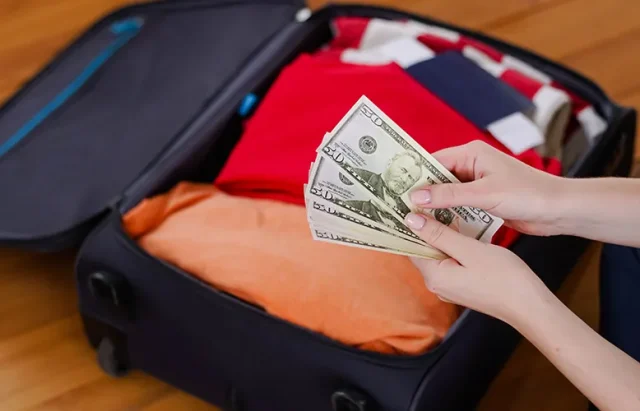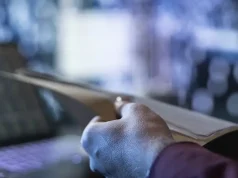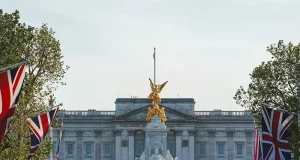
Wherever you’re heading – whether to the hot beaches of the south or the cool lakes of the north – there are just two things you absolutely can’t do without. That’s money and documents. So it’s better to take care of their safety and security in advance, so you don’t painfully regret a ruined vacation later on. In this article, we’ve gathered time-tested and experienced traveller tips that will help maximize the safety of your finances and documents abroad.
Make Digital and Physical Copies
Make copies of important documents such as your passport, ID cards, visas, travel insurance, and itinerary. Store these copies separately from the originals. Create digital copies stored securely in cloud services like Dropbox or Google Drive. These digital copies will help you confirm your identity if documents are lost.
Do not keep important documents on your smartphones because they may be stolen too when you travel. Even if you have registered with no verification casinos, do not store your passwords and login on the mobile device that you carry with you.
Divide Your Money
Do not keep all your cash and cards in one place. Divide your money into different compartments. Carry a small amount in your wallet or purse for daily expenses and keep the bulk in a secure location such as a hotel safe or a concealed money belt. This reduces the risk of losing everything in case of theft or loss. If you find yourself in a country with an unstable financial system or simply can’t accurately estimate how much money you’ll need for the next few days, it’s better to keep the main amount in hard currency and exchange it for local currency when you need it.
Use Bank Cards
Use bank cards In all countries, except for the most exotic and remote corners of the planet. A plastic card is the most convenient and safe way to withdraw cash and pay for goods and services. In some cases, for example, when arriving late at night in a country or needing to pay a large amount, the card will help you avoid additional problems associated with cash.
Of course, basic security rules should be followed when withdrawing money and making payments. It’s not worth using ATMs in sparsely populated places. SMS notifications about operations should be included, you shouldn’t trust your PIN code to anyone, and so on.
Have a List of Emergency Contacts
Compile a list of phone numbers that may come in handy for you. This list should definitely include contacts for the embassy in the country you’re travelling to, emergency services, your bank’s phone numbers, as well as two or three closest relatives or friends. And, of course, like in the previous point, this list should exist both in paper form in your belongings and digital form – in a cloud service.
Use Secure Storages
Invest in secure storage solutions such as travel wallets with RFID-blocking technology, hidden pouches or pockets in clothing, or neck wallets worn under your clothing. This way your money, cards, and documents are less vulnerable to pickpockets and opportunistic thieves in crowded areas.
Choose Right Accommodation
Choose accommodations that offer secure storage options for valuables such as room safes or lockers. Use these facilities to store passports, extra cash, and travel documents when they are not in use.
When you’re looking for a place to stay, always think about safety and convenience first. Go for places in safe, well-lit areas near public transport and cool places to visit.
Before you book anywhere, check out what people are saying on TripAdvisor or Booking.com. Look for recent reviews that talk about how safe and secure the place is.
Stick with places like hotels, hostels, or guesthouses that have a good rep for being safe.
Ask locals or other travellers for tips on which neighbourhoods are safe and which ones to skip.
And trust your gut—if something feels weird about a place, find somewhere else. Your instincts are usually right.
Prepare for Emergencies
Despite taking precautions, unexpected situations can arise. Have contingency plans in place. Know what to do in case of loss or theft. Report any incidents immediately to local authorities and obtain a police report if required for insurance claims or document replacement.
If you ever find yourself strapped for cash and unable to get money quickly through work, borrowing, or transfers, it’s smart to reach out to your country’s embassy or consulate. They might not cover all your expenses or arrange for you to come back home, but they can help you contact your family and arrange for the money you need.
If you lose your credit cards, get in touch with your bank right away to cancel them. Their customer support works around the clock, so you don’t have to wait for business hours or worry about time zones. Just follow the instructions they give you. In urgent situations, they can even issue a temporary card within 24 hours, so you can keep going on your trip smoothly.
You can also set the maximum amount of cash that can be withdrawn from an ATM or over the counter within a single day. This limit is typically set by the credit card issuer and can vary widely depending on the cardholder’s agreement and the policies of the issuing bank. Thieves may attempt to withdraw as much cash as possible shortly after stealing a card. The limit prevents them from accessing large sums of money
Regularly Monitor Your Finances
Keep track of your financial transactions while travelling. Regularly check your bank statements and credit card transactions for any unauthorized charges. Set up SMS or email alerts for transactions to detect and report any suspicious activity promptly.
The topic of financial and personal safety in travel is multifaceted and, of course, cannot be fully covered within one article. Undoubtedly, our readers have their methods and secrets on these matters. Perhaps you have already encountered unpleasant situations abroad and can share your experience with us. Send us an email with your story. We will share your tips with our readers.





